One Strange Rock - Season 1
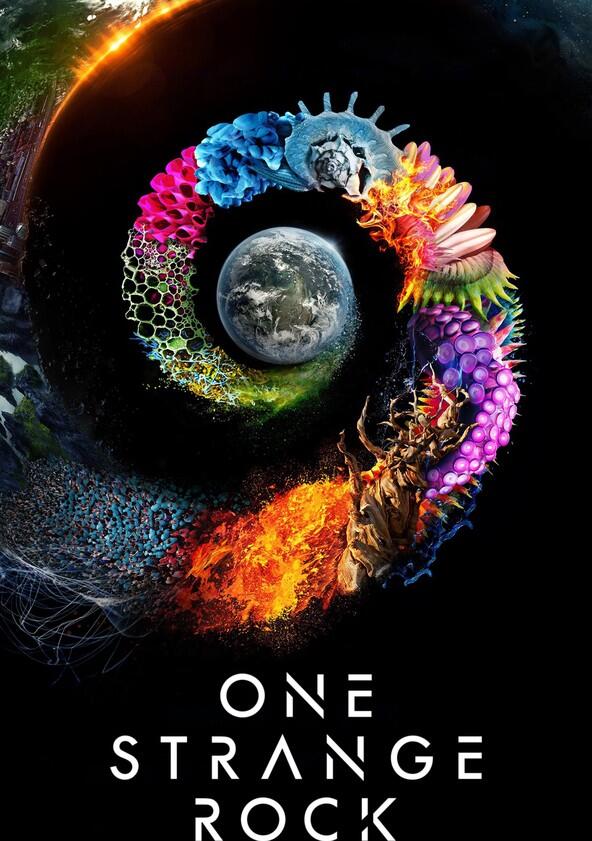
Season 1
Season one of One Strange Rock explores how the particularities of Earth's unique history make it ideally suited as a cradle for life and demonstrates how the planet's biological, chemical and physical systems form an interdependent equilibrium, sustaining all the wonders of the living world we know.
The series explores some of the questions many of us take for granted: Why is Earth the only planet (that we know) to support life? How fragile are the perfectly tuned systems that sustain this living planet? What are the greatest threats to the environment and human existence on Earth? Are we alone, and where did we come from? Is there really no place like home?

Episodes
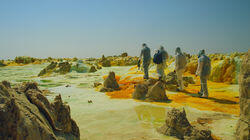
Gasp
For those privileged few who have seen Earth from space, the very first thing they notice is the thin blue line of atmosphere that clings to our planet and sustains life. How our planet creates and regulates that oxygen is a mind-blowing story involving a flying river, a global dust storm, collapsing glaciers and the most important creature you've never heard of. It's an incredible chain of connections that reveal just how truly wondrous our home is. Everything connects, so life and planet breathe together. Astronaut host - Chris Hadfield
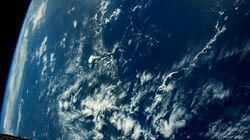
Storm
Ever wonder how our planet got here? It was born in a cosmic storm and shaped by violence. Earth is a very lucky planet. We're only here because of random collisions in a dangerous cosmos. They could have destroyed us, but instead, that violence constructed a planet from the rubble of the early solar system; gave us oceans in a bombardment from the heavens; and brought order to our world. Astronaut host – Nicole Stott.
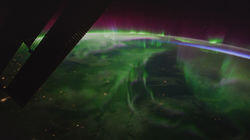
Shield
It's a David and Goliath story -- Earth's relationship with its greatest threat: our seemingly benign sun. Hurling devastating particles and deadly radiation at us, the sun is the big violent boss of the solar system. Without several shields, one generated by our unique planetary core, another by our atmosphere, and a third by our interconnected weather systems, life on Earth never would have survived. Astronaut host – Jeff Hoffman.
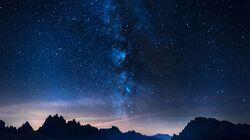
Genesis
Our rock is special; it's alive. Though the building blocks of life are common across the universe, life is rare. What is it about Earth that sets it apart? This is the story of dynamic forces and crazy coincidences that took a bunch of dead ingredients and transformed them into something as wondrously intricate as life. And if it happened here, could it happen elsewhere? Astronaut host – Mae Jemison.
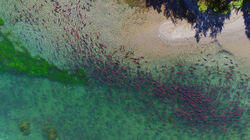
Survival
Without the cycle of death and sacrifice, from cellular to planetary, life would not be here. From the deaths of stars to planetary scale mass extinctions and the sacrifice of individuals for a greater genetic good, this is the story of how life evolved hand in hand with death. Death drives evolution. It's hardwired; from our cells to our landscapes, our colorful living planet is only possible thanks to it. Death leads to opportunity and biodiversity, which ironically ensures life on the planet is never wiped out. It's not enough for our planet to be habitable; it also has to be lethal. Astronaut host – Jerry Linenger.
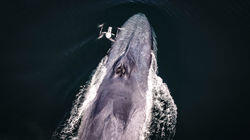
Escape
Is it possible for intelligent life to escape destruction either from the planet or ourselves? Or are we destined for extinction like 99.9 percent of all species before us? Our best chance of survival may be to escape Earth and build another colony somewhere else. But there are real barriers: space radiation, microgravity and the bacteria inside us. And our DNA is coded for the conditions here on Earth, so if we ever manage to colonize another planet, those who are born there might evolve into another species. Astronaut host - Chris Hadfield.
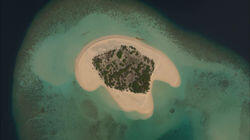
Terraform
Ever since life emerged, microbes, plants and animals have all sculpted the planet's surface and atmosphere in the strangest of ways: fish poop creates islands; dead animals create mountains; and plants help create continents. From rocks to rivers, life has crafted everything that makes our planet so special. But this power of change brings with it profound dangers. Life doesn't just create. It can also destroy. Astronaut host – Mike Massimino.
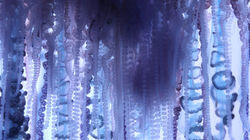
Alien
All life on Earth started as single-cell bacteria and stayed like that for two billion years. So even if we do find alien life out there, what are the chances of that life being complex like us? On our strange rock, it's all down to a freak event, which accidentally happened when one cell ate another to create a kind of power pack for life. This almost miraculous event transforms Earth into a complex interconnected web based on a competition for food. And at the top of the pyramid sit we humans. Astronaut host – Mae Jemison.
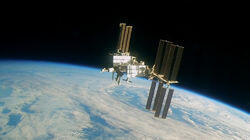
Awakening
Of all life on Earth, how come we're the only ones with the smarts to leave our planet? For three billion years, nothing had a brain. Even today, over 90 percent of life doesn't need a brain to survive. So, what happened? How did our planet set in motion the chain of nearly impossible events that gave us our unique intelligence? The greatest mystery of all may be right between your ears. Astronaut host – Leland Melvin.
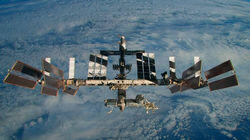
Home
After 665 weightless days in space, NASA's most experienced astronaut, Peggy Whitson, smashes through the atmosphere on her last journey home to planet Earth. With her first steps back on land, she encounters fresh air, blue skies, warm sun, and of course, gravity. With unprecedented filming on board the ISS during Peggy's final mission and with the support of our other featured astronauts, we reveal how their time in space transforms their understanding of our planet's wonders, insights that will change our perspective, too. There is no place like home. Or is there? Just how strange is our rock, and is it really unique in the universe? Astronaut host – Peggy Whitson.
Recently Updated Shows

The Rookie
The Rookie is inspired by a true story. John Nolan is the oldest rookie in the LAPD. At an age where most are at the peak of their career, Nolan cast aside his comfortable, small town life and moved to L.A. to pursue his dream of being a cop. Now, surrounded by rookies twenty years his junior, Nolan must navigate the dangerous, humorous and unpredictable world of a "young" cop, determined to make his second shot at life count.

The Studio
As movies struggle to stay alive and relevant, Matt and his core team of infighting executives battle their own insecurities as they wrangle narcissistic artists and craven corporate overlords in the ever-elusive pursuit of making great films. With their power suits masking their never-ending sense of panic, every party, set visit, casting decision, marketing meeting, and award show presents them with an opportunity for glittering success or career-ending catastrophe. As someone who eats, sleeps, and breathes movies, it's the job Matt's been pursuing his whole life, and it may very well destroy him.

True Detective
Touch darkness and darkness touches you back. True Detective centers on troubled cops and the investigations that drive them to the edge. Each season features a new cast and a new case.
True Detective is an American anthology crime drama television series created and written by Nic Pizzolatto.

S.W.A.T.
Shemar Moore stars as a locally born and raised S.W.A.T. sergeant newly tasked to run a specialized tactical unit that is the last stop in law enforcement in Los Angeles. Torn between loyalty to where he was raised and allegiance to his brothers in blue, former Marine Daniel "Hondo" Harrelson has everything it takes to be an excellent leader and bridge the divide between his two worlds.
